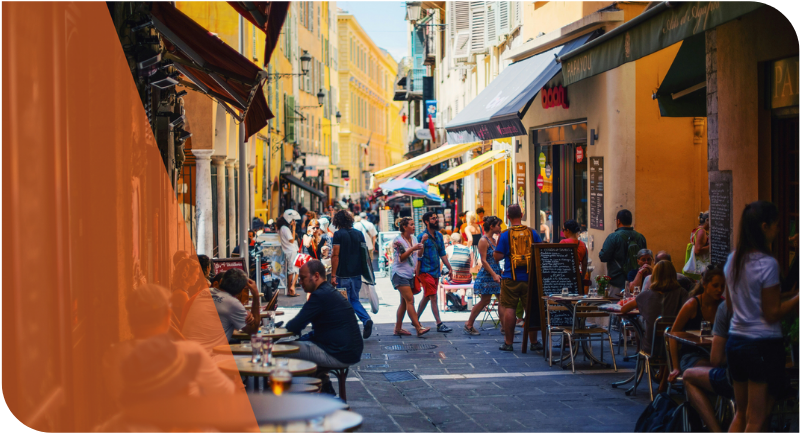Cracking the French Market: Culture, Media, and Business Insights
By Martha de Monclin, Founder at Bijou PR (our PR partner for France)
As companies consider expanding into new geographies, several key factors come into play. For the purposes of this blog, and drawing on more than 20 years of experience in the French market, I will focus specifically on France and B2B companies.
Why a Local Presence in France Is Essential for Success
Too often, I hear companies say that their French-speaking UK-based salesperson will “pop over” to France once a month to cover the market. This approach simply does not work long-term. To succeed, you need someone based in-country who truly understands the local landscape. Even from a media perspective, journalists are unlikely to take a company seriously if it lacks a genuine presence in France. Since Covid, maintaining a physical office is no longer essential—but having an established local presence is.
Europe isn’t one country.
Europe is not a single country. It is a collection of nations, each with its own culture, language, and media landscape. In France, this means it is essential to communicate in French: press releases, bylines, and other content should always be translated and localised. While many French professionals speak English fluently and often use it in their work, that does not eliminate the need for communication in their native language. Skipping translation risks undermining both credibility and reach.
Understanding the French Media Landscape
When it comes to translating press releases, one key reason is simple: journalists don’t have the time to do it themselves. Like everywhere else, editorial teams in France are shrinking. The days when a journalist could focus solely on one beat, e.g., CRM, are long gone. Today, they must cover a wide range of tech topics and track numerous companies. On average, journalists receive around 200 press releases a day, some of them irrelevant (but that’s a topic for another time), and only choose four or five to write about.
At the same time, media outlets are under real pressure. Just in the past few weeks, we’ve seen the print editions of 01Net and EDI disappear. Which means, budgets permitting, you should consider supporting your PR efforts with some paid media alongside earned. As someone said in Cannes in June this year, it’s thanks to advertisers that media can continue delivering great content and quality journalism.
Culture & Working Rhythms
The current French Prime Minister has floated the idea of reducing the number of public holidays, but the French public appears not to be on board. After all, France is well known for its generous calendar of holidays and vacations. Unlike in the UK, these holidays are observed on the exact date. For example, Bastille Day always falls on July 14th, never moved to the nearest Monday. And when a holiday lands on a Tuesday or Thursday, many people take the “bridge day” (the Monday or Friday) to extend it into a long weekend.
This makes May a particularly challenging month for business. The 1st and 8th of May are public holidays, and Pentecost, Ascension, and Whit Monday often fall in the same period. Add to that the fact that French employees must use their annual vacation allowance before the end of May and productivity can feel almost impossible. However, things quickly pick up in June, which tends to be one of the busiest months in the French business calendar.
Despite the perception of endless holidays and long summers, France consistently outperforms the UK on productivity. According to the Office for National Statistics, France is between 9% and 28% more productive than the UK, despite the May holidays and summer breaks.
Summer Slowdown and “La Rentrée”
The main summer holiday period in France stretches from Bastille Day (July 14th) to Assumption Day (August 15th), with many media outlets even closing their offices for two to three weeks. As a result, “la rentrée”, the return to work and school in September, is an especially busy and important time of year.
In conclusion, as with any international expansion it requires respect for the country, its people, and its culture. Get that right—and the French market can become a true growth engine.

